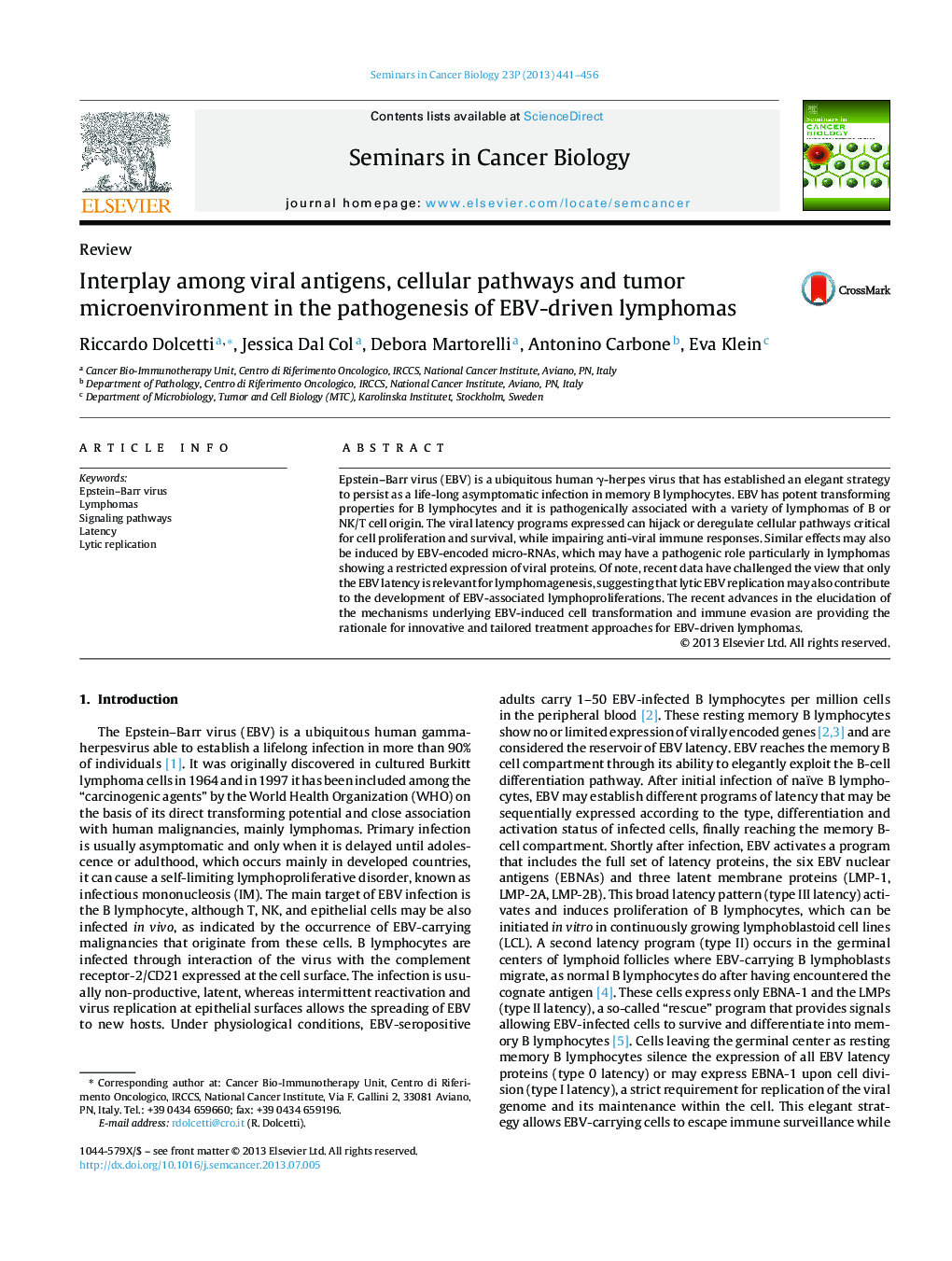| Article ID | Journal | Published Year | Pages | File Type |
|---|---|---|---|---|
| 2023680 | Seminars in Cancer Biology | 2013 | 16 Pages |
Epstein-Barr virus (EBV) is a ubiquitous human γ-herpes virus that has established an elegant strategy to persist as a life-long asymptomatic infection in memory B lymphocytes. EBV has potent transforming properties for B lymphocytes and it is pathogenically associated with a variety of lymphomas of B or NK/T cell origin. The viral latency programs expressed can hijack or deregulate cellular pathways critical for cell proliferation and survival, while impairing anti-viral immune responses. Similar effects may also be induced by EBV-encoded micro-RNAs, which may have a pathogenic role particularly in lymphomas showing a restricted expression of viral proteins. Of note, recent data have challenged the view that only the EBV latency is relevant for lymphomagenesis, suggesting that lytic EBV replication may also contribute to the development of EBV-associated lymphoproliferations. The recent advances in the elucidation of the mechanisms underlying EBV-induced cell transformation and immune evasion are providing the rationale for innovative and tailored treatment approaches for EBV-driven lymphomas.
